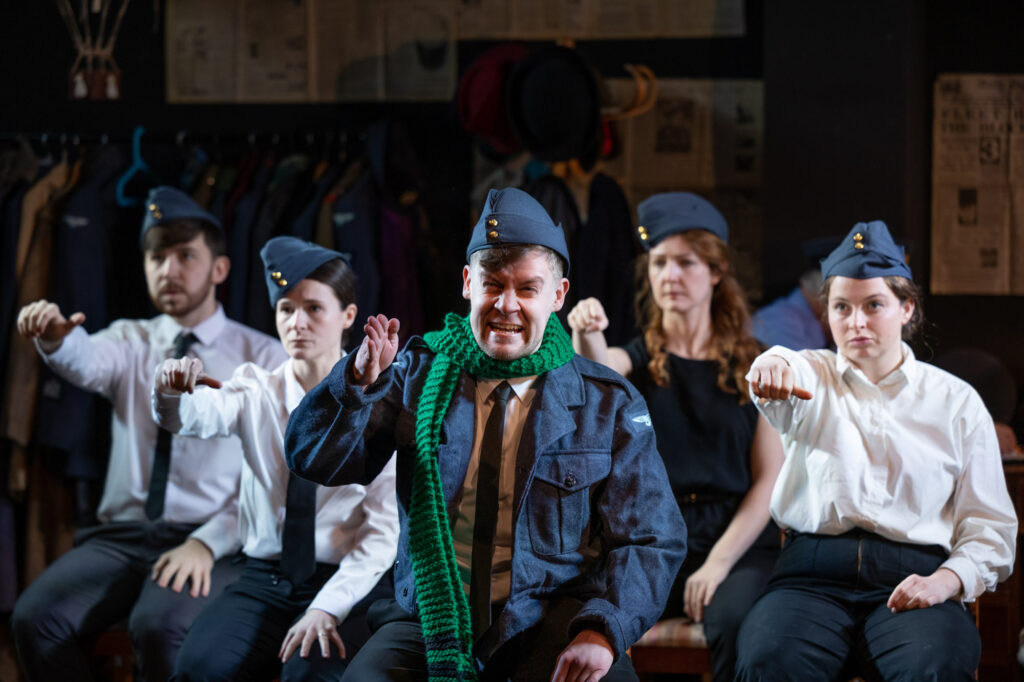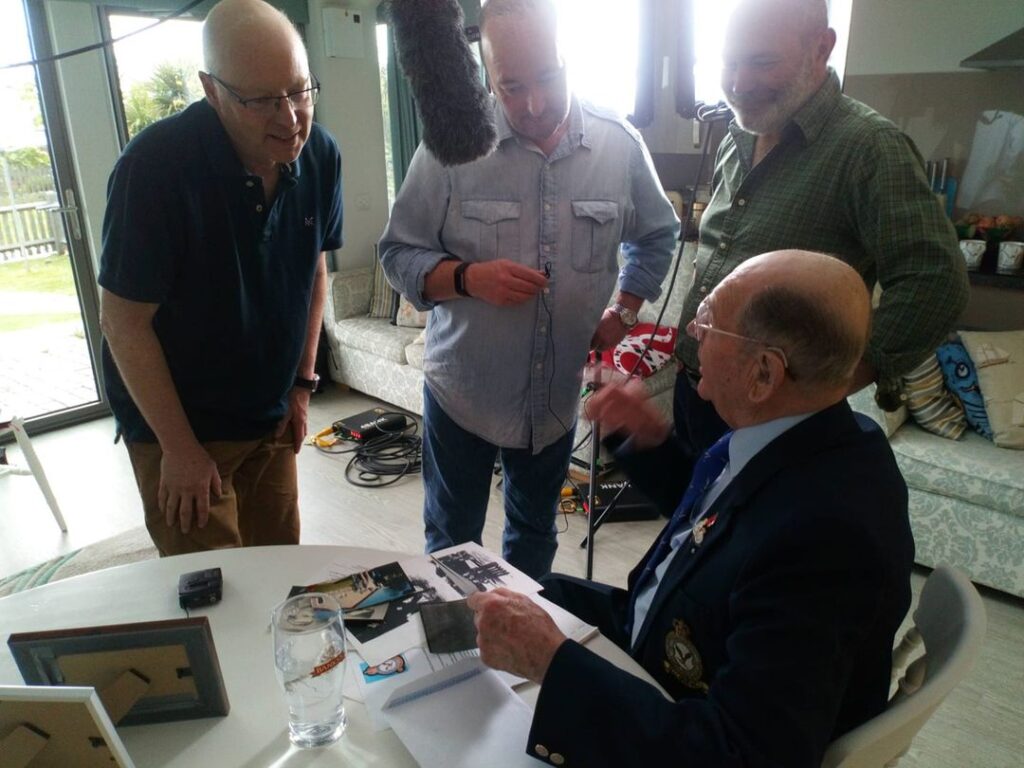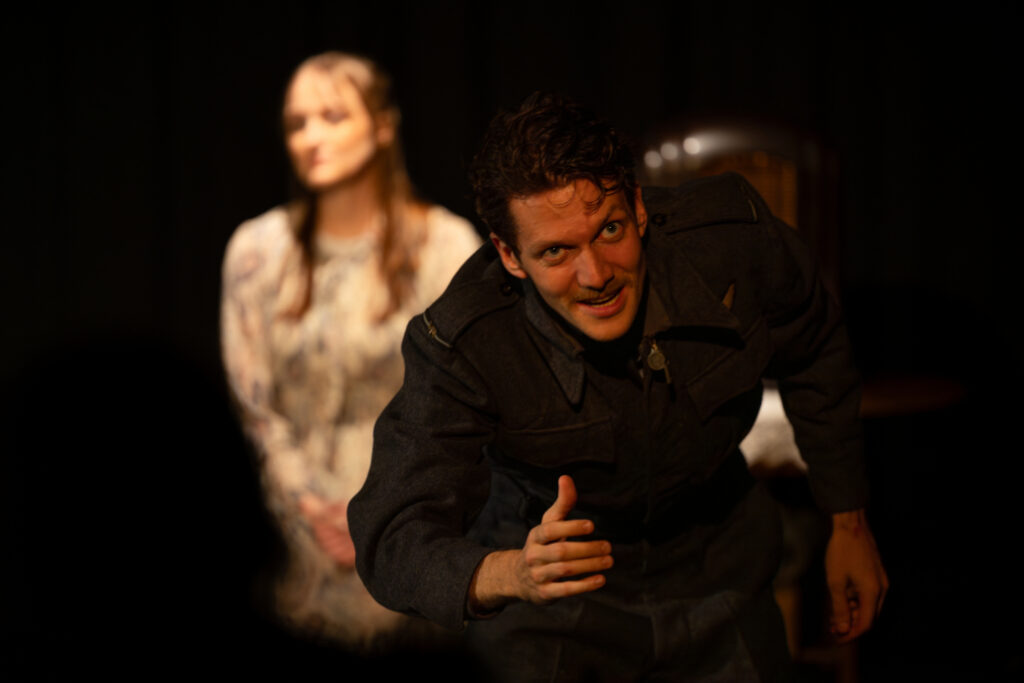The competitive pedants on social media have been busy, voicing opinions, nay, grave concerns in regard authenticity in historical dramas. Ridley Scott’s ‘Napoleon’ raised eyebrows, indeed the outright ire of many historians, and Scott had no qualms in stoking the fire, brushing aside the academics and experts with a dismissive ‘Were you there?’ And the adaptation of Frederick Forsyth’s ‘The Shepherd’ elicited a fair few tut tuts. ‘What? John Travolta’s a pilot and has a beard!’
I have had my fair share of the pedant gaze this year, examples being the comments made on the haircut of an actor in my play ‘The Valentine Letters’, and the uniforms in the play ‘Their Finest Hour’. Comments, incidentally, from people who hadn’t seen either production, so had no knowledge of the context of the respective production photograph. Such is the online world of quick-fire virtue pedantry.

But do the historical scrutiny police have a point? Or is it dependent on the nature of the medium?
The focus of drama, in a theatre or film setting, is for the creatives involved, the writers, directors, producers, musicians, and cameramen, to transfer emotion and feeling from the actors to the audience. Whereas the focus for documentary makers is for those respective creatives to transfer information. Even so, it is not emotion versus information. They are not exclusive. Both help us make sense of our world, be that through feeling, fact, or a combination of the two.
To succeed, the historical drama or documentary needs to be engaging, and as authentic as possible. Attempting to transfer too much information in a drama quickly results in the piece becoming bogged down, compromising the emotional authenticity, and risks losing an audience who has been sold ‘drama’. Endeavouring to transfer too much emotion in a documentary may well compromise the informational integrity. The best creatives, in knowing their audience, find the right balance.
I recently worked as a co-producer and consultant on the ‘Lancaster’ film, with Directors David Fairhead and Anthony Palmer. The film, a documentary, has been very well received, I believe because David and Ant, whilst transferring information, made it engaging and authentic through good story telling, attracting a wider audience compared to other documentaries in the genre. In large part owing to the way David and Ant presented the aircrew as characters, with emotions and feelings that people could relate to.

When researching and interviewing for the film we paid great attention to the detail and the presentation of the facts, because it is documentary. I have also noted the recent online debates about the value of veteran testimony. These veterans would answer ‘Yes’ to Ridley Scott’s ‘Were you there?’, and their accounts are a useful story-telling tool, because the documentary creatives can elicit the emotion and feeling, to engage. But memories are fallible, and creatives do well to beware. Testimony must be treated with great care and authenticated by cross referencing to other sources.
Contrast this to the theatrical staging of the play ‘The Valentine Letters’, based upon the actual wartime letters of Bomber Command airmen and POW John Valentine and his wife Ursula. The prime focus of the play was to present how a young couple, in wartime, coped with their conditions. The threat of bombing, the dangers of flying on operations, the not knowing, the anxieties of separation, the long-term consequences of being a combatant, and the cost of being married to someone damaged by war. Through staging, lighting, sound effects, and music, under the direction of Jo Emery, we focused on the emotion of the piece. We did not need a Manchester bomber on stage when we presented the moment John was shot down. That was not the point, in fact it could it make it too literal and act as a distraction. We were seeking to draw out an emotional truth. We can present the environment and historical context through suggestion. Indeed, anyone putting on a play in current conditions knows that staging ambitions clash with the necessity of tight budgets.

I must hold my hand up of course. I too can pedant. Good historical research is important in the quest for authenticity. Some dialogue in the trailer for the forthcoming ‘Masters of the Air’ raised my eyebrow. But having worked in historical drama and documentary, with a better feel for the demands of the two mediums, I can be a little more relaxed. If it says ‘drama’, a play or film, you are invited on an emotional journey. (Yesterday, on it’s 62nd anniversary, I was reminded of the release of the excellent ‘Judgement at Nuremberg’, in which Spencer Tracey at al wear translation headphones, yet all the dialogue is performed in English. A wise decision, and we can focus in on the drama and emotion.) If it says ‘documentary’ you are invited on an informational journey. To engage, succeed, and stand out, both drama and documentary, however, need good story telling.
Post Script
I asked Director David Fairhead to comment on the above. Here’s his response.
‘I would take issue with the idea that a documentary is just about imparting information. I know you qualify this and use it as a way to distinguish a documentary from drama, but I’d say that a documentary is a film that uses fact as the basis of its story, whereas drama uses fiction. Now of course, a drama can be ‘based on real events’ (like your play) but is still essentially fictionalised. And a documentary, although grounded in fact, can still stray from the truth. Both are constructs. The way Ant and I work is to create a narrative around our veteran’s experiences, which uses historical facts as a spine to the story. Ultimately, a documentary is still a piece of entertainment, just as a drama is. Both are valid and both can be meaningful.’
